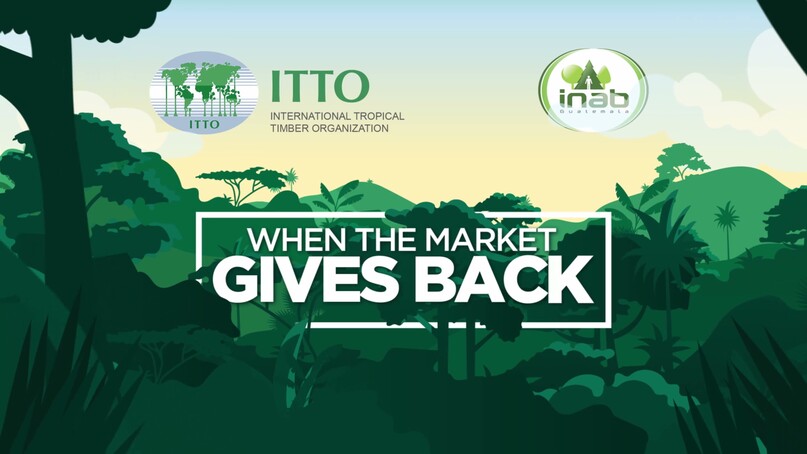When the market gives back: new video portrays sustainable forest-based development in Guatemala
27 January 2021

A video produced by ITTO and Guatemala’s National Forest Institute (INAB) shows how communities are developing forest-based businesses with green supply chains, including an enterprise making wood-based kitchenware and another creating novelty items using pine needles. The two ventures are increasing incomes along with support for sustainable forest management—and inspiring others.
A priority for INAB is to support forest-related enterprises and entrepreneurs. As part of this, an ITTO-financed project [PD 756/14 Rev.1 (M)] was implemented in Guatemala from 2015 to 2018 with the aim of encouraging informal businesses such as backyard carpentry workshops to formalize and register with the National Forest Registry through the Electronic Forest Enterprise Information System (Sistema Electrónico de Información de Empresas Forestales—SEINEF) and thus become part of the country’s formal economy.
The project worked with 19 small and medium-sized forest enterprises (known as MSMEs) throughout the country. One of these was Sacalá, a small business (and community of the same name) located in San Martín Jilotepeque, Chimaltenango, not far from Guatemala City.
Sacalá, which is featured in the video, received support from the project to develop a business plan, increase management capacity, create a more robust company structure and develop new products and designs. Sacalá now offers its clients more than 100 products, such as tea boxes, card boxes, cheeseboards, serving platters, fruit bowls and serviette holders, all produced from small-diameter logs sourced from locally managed forests.
The company more than doubled its revenue between 2015—at the start of the project—and 2018. It now has 12 full-time employees, who support about 60 dependents in the village. The company’s success is generating other benefits, too: the imperative to emigrate to cities from the village is reduced because the place of employment is near workers’ homes; service providers in the community are gaining from the additional spending of employees and their families; and awareness is growing of the need for sustainable forest management and verified supply chains to underpin the enterprise.
The other MSMEs involved in the project are also now applying their newly acquired business management skills to increase the profitability and efficiency of their forest-based enterprises. They have greater control over production, and they are expanding their client portfolios and increasing innovation through business promotion events. More broadly, this and other ITTO projects in Guatemala—including one to further develop the SEINEF—have strengthened the enabling and regulatory environment to give such enterprises the best chance of success.
Watch the video